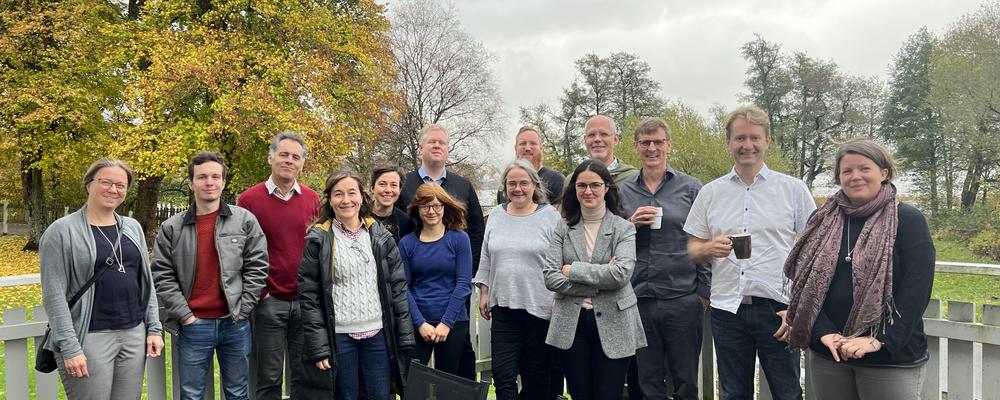The two-day workshop took place on 25-26 October and gathered 15 participants from academia and national authorities in Sweden and Europe.
Jessica Coria, environmental economist, and researcher Vice-Director at FRAM, hosted the workshop and initiated the session by presenting the results of the project Evaluation of the Regulation of Hazardous Chemical substances in Europe. This project investigates whether the European regulation REACH is sufficiently protective against the risks posed by substances of very high concern and what policy changes should be implemented to ensure a high level of protection.
Next up was FRAM-researcher Daniel Slunge who, together with Anders Boman and Mécia Miguel from the University of Gothenburg, presented their work on the use of information and taxes to phase out hazardous chemicals in consumer products with findings from a systematic review and ideas for upcoming research.
“Understanding of regulatory processes, regulatory relevance and practical implementation is key for research to contribute and be useful for regulatory development. A continued exchange between national authorities and academia is therefore necessary.”, says Åsa Thors from the Swedish Chemicals Agency.
Her colleague Emma Westerholm continues, “It is a prerequisite to get an increased understanding for how regulatory proposals are processed and decisions are taken and how policy frameworks and processes differ depending on who the decision maker is, and which regulation is concerned, to make greater use of research results in policy-making.”
Åsa and Emma attended in the role of regulators and presented the need for research on chemical regulation and ongoing analyses and evaluations.
The first day was concluded with a presentation from the Institut National de la Recherche Agronomique (INRA) and the Toulouse School of Economics. Marion Desquilbet, a researcher in Economics, and Laurence Huc, a researcher in ecotoxicology, presented their research on the cancer-causing potential of pesticides which sparked interesting discussions about research methodology.
The second day started off with Jessica Coria, accompanied by Stefan Ambec from the Toulouse School of Economics, presenting their work on smudging and how environmental regulations are shaped by biased scientific expertise.
The day concluded with Erik Kristiansson, professor in biostatistics at Chalmers Technical University, and Mikael Gustavsson, an ecotoxicologist at the University of Gothenburg, discussing the current state of data on chemicals and exciting ways forward with the potentials of an AI.
Jessica Coria is very pleased with the discussions during the workshop.
“The absence of evidence and scientific data is a major obstacle hindering effective environmental regulation. In addition, not even when scientific evidence is available is it straightforward to determine what is the best available science since the scientific evidence is prone to be biased where different groups of experts promulgate findings that support their own objectives favoured policy outcomes. Many of the projects discussed during the workshop will help to unravel science–policy relations affecting chemical regulations", concludes Jessica.
